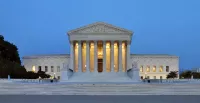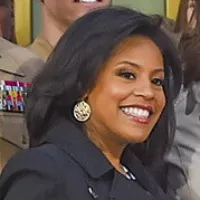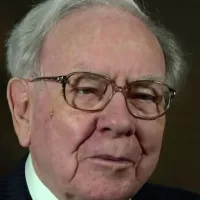The Egba United Government (EUG) emerged in the late 19th century among the Egba-Egbado people (Yoruba subgroup) in present-day Southwestern Nigeria and Eastern Benin. Formed in 1893, it formalized a loose confederacy of Egba towns and villages that had united in response to external threats, notably from Dahomey and the remnants of the Oyo Empire. The EUG represented an attempt at self-governance and defense in a turbulent period of West African history. It aimed to consolidate power and protect its territory against external aggression, marking a significant moment of unity and political organization for the Egba people.
1902: Adegboyega Edun Leaves Wesleyan Boy’s High School
In 1902, Adegboyega Edun concluded his role as the principal of the Wesleyan Boy’s High School, Lagos, a position he held from 1893. His public service at this time earned him the appreciation of the Governor of Lagos Colony, Sir William Macgregor.
1904: Alake Gbadebo and Ademola II Visit the U.K.
In 1904, Ademola II traveled with Alake Gbadebo to the U.K., where they were received by King Edward VII.
1914: Adebesin Folarin Appointed Legal Adviser and Law Officer
In 1914, Adebesin Folarin was appointed as the Legal Adviser and Law Officer in the Egba United Government.
August 1915: Death of John Payne Jackson
In August 1915, John Payne Jackson, an Americo-Liberian journalist and editor of the Lagos Weekly Record, died. He was influential in Lagos, Nigeria, and was an advisor to Alake Gbadebo I.
1918: Dissolution of the Egba United Government
In 1918, the Egba United Government was absorbed into the British colonial administration, marking the end of its existence as a separate entity. This was due to Frederick Lugard's vision of "indirect rule" and the aftermath of the Adubi War.
1920: Ademola II Succeeds Oba Gbadebo as Alake of Abeokuta
In 1920, Ademola II succeeded Oba Gbadebo as the Alake of Abeokuta with overwhelming votes from the Egba council.
1920: Death of Alake Gbadebo I
In 1920, Alake Gbadebo I died on May 28. Before his death, he asked for baptism and was obliged by his old friend, the Roman Catholic Father Coquard.
1925: Death of Adegboyega Edun
In 1925, Adegboyega Edun, who served as the secretary of the Egba United Government, passed away.
October 1949: Death of Chief Adebesin Folarin
In October 1949, Chief Adebesin Folarin, a Nigerian barrister, judge, public official, historian, and author, passed away on October 4th.
June 1959: Death of Sir Olumuyiwa Jibowu
In June 1959, Sir Olumuyiwa Jibowu, a Nigerian jurist and the first African to serve on the Supreme Court of Nigeria, passed away on June 1st.
1962: Death of Oba Sir Ladapo Samuel Ademola
In 1962, Oba Sir Ladapo Samuel Ademola, also known as Ademola II, passed away.
Mentioned in this timeline
Nigeria is a West African nation the most populous in...

War is defined as an armed conflict involving the organized...

A supreme court the court of last resort in many...
England a constituent country of the United Kingdom occupies roughly...
Time is the continuous irreversible progression of existence from past...

A school is an educational institution designed to provide structured...
Trending
2 months ago Dylan Raiola Transfer Rumors Surface; Brother Decommits from Nebraska, Future Uncertain

8 months ago Sheinelle Jones' Husband, Uche Ojeh, Passes Away at 45 After Cancer Battle
3 months ago Kelly Services Recognized for Leadership in Staffing and Hiring Solutions in 2025 Rankings
2 months ago Brandon Lake Makes History as First Christian Artist on Amazon's SongLine.

9 months ago Warren Buffett's Investing Genius and Market Crash Strategy Revealed Again: A Timeless Advantage

9 months ago Maury Povich reflects on media; Connie Chung honored and encouraged to write memoir.
Popular

Carson Beck is an American college football quarterback currently playing...
Curt Cignetti is an American college football coach currently the...

XXXTentacion born Jahseh Dwayne Ricardo Onfroy was a controversial yet...
WWE Raw a professional wrestling television program by WWE airs...

Stranger Things created by the Duffer Brothers is a popular...

Kristi Noem is an American politician who has served as...